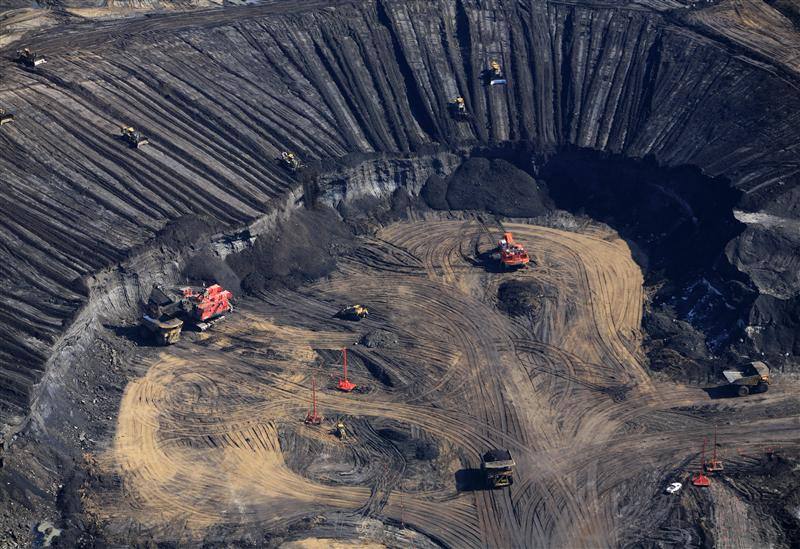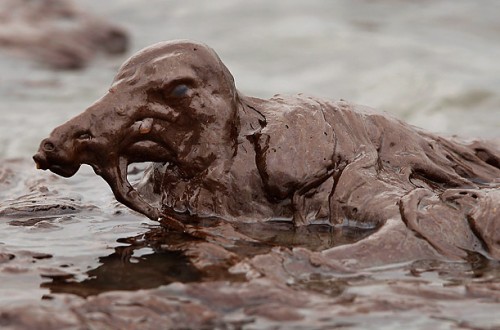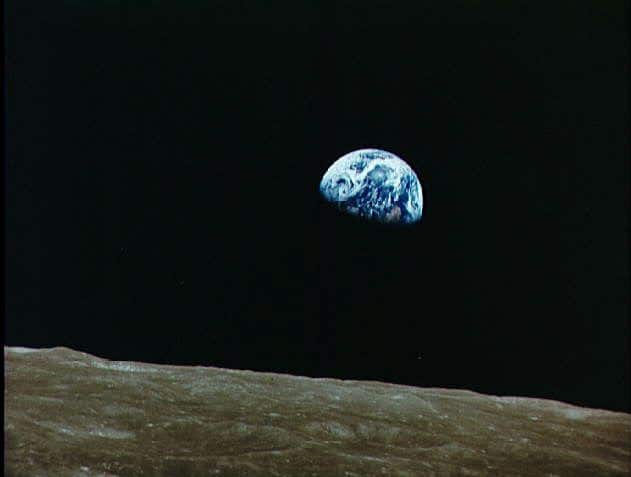We are living in difficult times. The ongoing economic crisis started by the 2008 Sub-Prime Mortgage Scandal has all of us thinking about our future. We are vulnerable to unethical appeals to our anxiety in the form of quick fixes and easy profits. The promise of “Ethical Oil” is the worst of these appeals. We have to resist. Even more, we have to take decisive actions that the current leadership will not. To quote a famous man, we have an ordeal before us of the most grievous kind and we need a new generation of leadership to tackle it. We need the next Great Generation.
In 2008, world financial markets collapsed in dramatic fashion due to unethical investment practices, particularly in the previous five years. Toxic subprime mortgages had been injected like a virus into securities like Collateralized Debt Obligations (CDOs). Investment banks around the world were in on this scam and kept pushing it far beyond the point where it was obvious something had to give. Last year, the U.S. Financial Crisis Inquiry Commission concluded:
“the crisis was avoidable and was caused by: Widespread failures in financial regulation, including the Federal Reserve’s failure to stem the tide of toxic mortgages; Dramatic breakdowns in corporate governance including too many financial firms acting recklessly and taking on too much risk; An explosive mix of excessive borrowing and risk by households and Wall Street that put the financial system on a collision course with crisis; Key policy makers ill prepared for the crisis, lacking a full understanding of the financial system they oversaw; and systemic breaches in accountability and ethics at all levels.“
How could the crisis have been avoided? People entrusted with our collective futures were warned. In 2005, economic oracle and author of the bestseller Irrational Exuberance, Robert Shiller warned the Office of the Comptroller of the Currency and the Federal Deposit Insurance Corporation about a housing bubble that might lead to a worldwide recession. His advice was ignored. Also in 2005, Greg Lippmann, the head CDO trader at Deutsche Bank, called the CDO market a ponzi scheme and bet $5 billion against the housing market. He did this with full knowledge of Deutsche Bank management. All the while, the very same bank continued to sell CDOs to investors.
These are only two examples of many key moments in which the financial crisis could have been mitigated if elected officials and their appointees had acted in a responsible manner. This would have meant acting in the interest of the majority of people.
Warnings came and went, but the cash cow freight train kept hurtling toward the inevitable outcome: outright failures of some of the oldest, most established banks in the world. The impact on average people was and continues to be devastating.
It is interesting to note, however, that those who benefited from the ongoing sale of unethical securities continued to reap huge bonuses even after the collapse, paid for by consumer tax dollars. That’s right. Not only did the wealthy get even wealthier from unethical behavior, they continued to do so even after being caught out. The mass of us paid for this with our savings, with our taxes, with our jobs and with our security. They are wealthier, and we are all the poorer for it.

Backed by the evangelical Right and the heavily foreign-owned tar sands industry, and against all warnings about climate change, the Harper government is enacting an aggressive pro-Tar Sands agenda. Ring any bells?
Add to this the fact that Canada’s system of government puts extreme power in the hands of the Prime Minister of a majority government, and you have a recipe for four years of disastrous policy. Indeed, the first six months has seen Canada embarassed on the world stage numerous times for its contempt for anything resembling a global warming treaty. In addition, Canada has been actively sabotaging climate policies in other countries.
I grew up in Alberta and worked on the oil fields around Edmonton in the early eighties. Those were the now vanishing days of pumping sweet, light crude from the golden wheat fields of the prairies. Alberta is now known for exploiting the world’s largest deposit of tar sands, and there’s nothing pretty about it. The environmental record of this project is well documented.

This is well documented by unprecedented scientific collaboration around the world. It is a fact that if we burn the 230 billion tons of carbon locked in Alberta’s tar sands it will spike global warming to catastrophic levels. The global climate will start to change more quickly than we can manage.
The social and political upheaval resultant of rapid warming would be far worse than previous wars, famines or environmental catastrophes. It would alter the course of humanity forever. Millions, perhaps billions will be negatively affected by the changes that we invited upon ourselves.
If what I have said sounds hyperbolic, that’s because we all want to believe that it is. We want to maintain our bias toward a positive outcome. Rational people, when confronted with facts over and over, eventually come around to recognize the truth. Sometimes too late, but they eventually do.
In our time, unfortunately, there are those among us who are willing to take money to cover up or blur the facts – people who consciously choose to lie about the future and attack legitimate science for their own short term benefit, or for the industries they protect.
It is unethical beyond comprehension to rob future humans of climate stability and security for the sake of more profits for today’s elites. Unfortunately, as there was leading up to the subprime scandal in the USA, there is groupthink of an unprecedented level occurring in Canada right now.
The political and economic elite will nod gravely at the idea the Canadian economy will collapse if we don’t go ahead with the tar sands expansion, when the opposite is true.

Pipelines crossing thousands of miles of pristine wilderness are hard-sold to communities.
Supertankers sailing in narrow channels of rich coastal fishing grounds are needed, say our leaders, in spite of the risks.
Communities whose livelihoods depend on the oil industry return Conservative, pro-tar sands politicians to our national government in record levels of popular support.
Politicians talk about “Nation Building” when no such plans exist.
And, yes, PR professionals like those behind the Ethical Oil campaign continue to take money and benefits today while selling our children and grandchildren down the river.
Canada is being run like a colonial outpost and our Federal and Provincial governments facilitate rapid resource extraction at the highest profit.
Certainly there is plenty of money to be made, just as there was with the toxic securities that drove the 2008 collapse. The pear-shaped outcome of burning the tar sands will be similar. Elites will be safe and the masses of the population in general will pay dearly. Even the one percent will feel the impact but the difference for the poor will be the exponentially larger scale of the disaster.
The psychology is all too familiar. Groupthink helps us go into a mode where the anonymity of the crowd absolves us of sin: “Everyone else is doing it, I should get in on it. It’s not me who makes the call. I’m just going along. I owe it to myself and my family to get the best return I can.”
We do it on a national level as well. The USA, like a big brother, behaves badly on the world stage, and Canada, like a little brother, accused of misdeeds, says “if the USA doesn’t have to behave, we don’t either.”
****
In this time I think a lot about my grandparents’ generation. We just buried a 90 year old in my family who fought in the Second World War. He was a member of the “Greatest Generation” that suffered in the Great Depression and sacrificed millions of their lives to beat back Fascism.
Elites in their generation wanted to work with fascists. Initially, there was a policy of Appeasement.
It’s not that different today. The stakes are the same, or higher. Elites pushing the Carbon agenda want to stay the course. Don’t upset the apple cart. Like the Subprime scandal, we appear willing to go full tilt until the last drop. We seem willing to blind ourselves to the climate catastrophe by lapping up the nonsense of industry-funded fringe climate change deniers. Mass media continues to present their nonsense as morally, ethically and scientifically equal to the results of unprecedented global scientific collaboration. In the name of “Balance”? This is a tragedy.
If my grandparents’ generation was the last great generation, who will be the next? Is it too late for the Boomers? Will it be my generation, Generation X? Will it be Generation Y? The Millenials?
Our descendants will identify two key generations: the last to turn a blind eye to climate change in the pursuit of one more dollar, and the first to say “enough” and make the difference.
Subscribe to our newsletter
Stay up to date with DeSmog news and alerts









